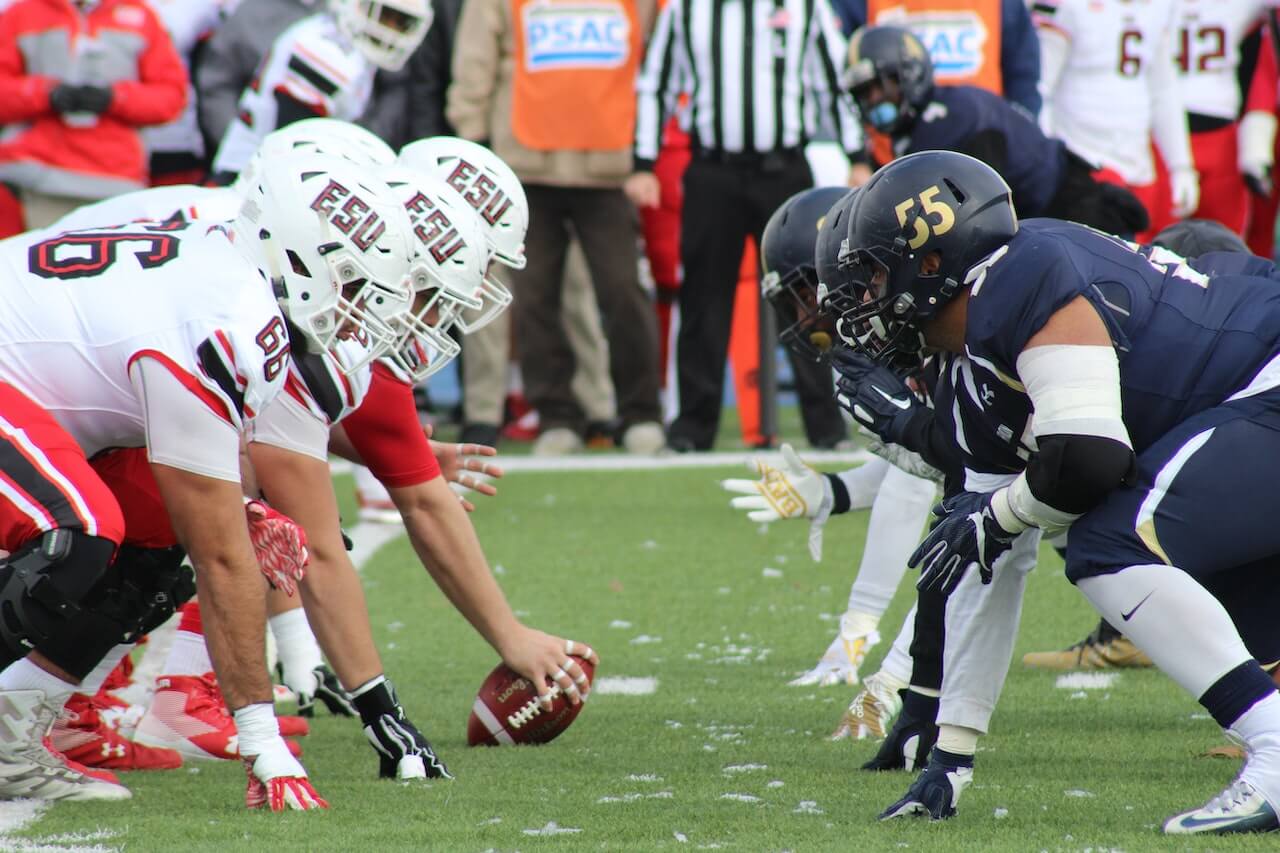Football is a sport that requires dedication, practice, and skill. Whether you are a beginner or an experienced player, there is always room for improvement. Improving your football skills requires a combination of physical and mental training. In this article, we will provide tips and advice on how to get better in football.
One of the most important aspects of improving in football is having a positive attitude. A positive attitude will help you stay motivated and focused on your goals. It is important to set realistic goals for yourself and work towards achieving them. This can be done by breaking down your goals into smaller, achievable steps.
Another key factor in improving your football skills is practice. Regular practice will help you develop your skills and improve your overall performance. It is important to practice both on and off the field. This includes physical training, such as running and strength training, as well as mental training, such as visualization and goal-setting.
Master the Basics
Football is a game of skill, strategy, and teamwork. To become a better player, it’s essential to master the basics. This means focusing on the fundamentals of the game, such as passing, dribbling, shooting, and defending.
One of the most important aspects of mastering the basics is developing good technique. This means learning the proper form for each skill and practicing it until it becomes second nature. For example, when passing the ball, a player should use the inside of their foot and follow through with their leg to ensure accuracy and power.
Another key element of mastering the basics is building endurance and strength. Football players need to be able to run for long periods of time without getting tired, as well as have the strength to make quick movements and hold their ground against opponents. This can be achieved through regular cardio and strength training exercises, such as running, weightlifting, and plyometrics.
In addition to technique and physical fitness, mastering the basics also involves understanding the game’s rules and strategies. Players should know how to read the field, anticipate their opponents’ moves, and communicate effectively with their teammates. This can be achieved through studying game footage, working with coaches, and practicing situational scenarios.
Overall, mastering the basics is essential for any football player looking to improve their skills and become a valuable member of their team. By focusing on technique, physical fitness, and game knowledge, players can build a strong foundation for success on the field.
Develop Your Skills
Developing your skills is crucial to becoming a better football player. Consistent practice and dedication are key to improving your abilities. Here are some tips to help you develop your skills:
- Practice your footwork: Footwork is an essential part of football. Work on your agility, balance, and coordination by practicing ladder drills, cone drills, and other footwork exercises.
- Improve your ball control: Ball control is vital for any football player. Practice dribbling, passing, and shooting to improve your ball control skills.
- Work on your strength and conditioning: Football requires a lot of physical strength and endurance. Incorporate strength training and cardio exercises into your routine to improve your overall fitness.
- Study the game: Watch football games and analyze the strategies and techniques used by professional players. This can help you improve your own game by learning from the best.
- Get feedback: Ask coaches and teammates for feedback on your performance. This can help you identify areas where you need to improve and make adjustments to your game.
Remember, developing your skills takes time and effort. Stay committed to your training and keep practicing to see improvement in your performance on the field.
Improve Your Physical Fitness
Physical fitness is essential for football players, as it allows them to perform at their best and reduce the risk of injuries. Here are a few ways to improve your physical fitness:
1. Cardiovascular Endurance: Football requires players to run continuously for long periods. Therefore, it is essential to have good cardiovascular endurance. Running, cycling, and swimming are great ways to improve endurance.
2. Strength Training: Football players need strength to tackle, jump, and push opponents. Strength training exercises such as squats, lunges, and deadlifts can help build muscle and improve overall strength.
3. Agility and Coordination: Football players need to be agile and coordinated to move quickly and change direction. Agility drills, such as ladder drills and cone drills, can help improve agility and coordination.
4. Flexibility: Flexibility is essential to reduce the risk of injuries and improve performance. Stretching exercises, such as yoga and Pilates, can help improve flexibility.
5. Rest and Recovery: Rest and recovery are crucial for physical fitness. Football players should get enough sleep, eat a healthy diet, and take breaks between training sessions to allow their bodies to recover.
Improving physical fitness takes time and effort. It is essential to have a well-rounded training program that includes cardio, strength training, agility, and flexibility exercises. By following these tips, football players can improve their physical fitness and perform at their best on the field.
Study the Game
One of the most important aspects of becoming a better football player is studying the game. This means watching professional matches, analyzing plays, and learning from the best players in the world.
One effective way to study the game is to watch professional matches with a critical eye. Pay attention to the movements of the players, the strategies used by the teams, and the overall flow of the game. Take note of successful plays and mistakes made by players, and think about how you can apply these lessons to your own game.
Another way to learn from the best players is to watch highlight reels and analysis videos. These videos can provide valuable insights into the techniques and strategies used by top players, and can help you improve your own skills.
In addition to watching and analyzing matches, it’s important to read about football and stay up-to-date on the latest news and trends in the sport. This can include reading articles and books about football, following football blogs and social media accounts, and attending football events and conferences.
Overall, studying the game is an essential part of becoming a better football player. By watching matches, learning from top players, and staying up-to-date on the latest news and trends, you can improve your skills and take your game to the next level.
Play to Your Strengths
One of the most important things a football player can do to improve their game is to play to their strengths. Every player has their own unique set of skills and abilities, and it’s crucial to identify and utilize them in order to perform at their best.
For example, if a player is particularly fast, they should focus on using their speed to make quick, explosive plays on the field. On the other hand, if a player is strong and powerful, they may want to focus on using their strength to dominate opponents in one-on-one situations.
It’s also important for players to understand their position and how it fits into the overall team strategy. A quarterback, for instance, should focus on developing their passing skills and reading the defense, while a defensive lineman should work on their footwork and hand placement to better engage with offensive linemen.
By playing to their strengths, players can not only improve their individual performance, but also contribute to the success of the team as a whole. Coaches should encourage players to identify their strengths and work on developing them, while also providing guidance and support in areas where they may need improvement.
Practice with Purpose
Practice is the key to success in football. However, it is not just about practicing for the sake of it. Practice with purpose is the key to becoming a better football player. Here are some tips to help you practice with purpose:
- Set specific goals for each practice session. This will help you focus on what you want to achieve and track your progress.
- Work on your weaknesses. Identify your weaknesses and focus on improving them during practice. This will help you become a more well-rounded player.
- Practice at game speed. Practicing at game speed will help you get used to the pace of the game and improve your reaction time.
- Get feedback from your coach. Your coach can provide valuable feedback on your performance and help you identify areas for improvement.
- Practice with a purposeful mindset. Stay focused during practice and avoid distractions. This will help you get the most out of your practice sessions.
Remember, practice with purpose is the key to becoming a better football player. By setting specific goals, working on your weaknesses, practicing at game speed, getting feedback from your coach, and staying focused, you can take your game to the next level.
Mental Preparation
Mental preparation is a crucial aspect of football that is often overlooked. A player’s mental state can greatly impact their performance on the field.
One way to mentally prepare for a game is to visualize success. Before a game, a player can take some time to visualize themselves making successful plays, scoring goals, and ultimately winning the game. This technique can help boost confidence and reduce anxiety.
Another important aspect of mental preparation is staying focused. It’s easy to get distracted during a game, but players who are able to stay focused on the task at hand are more likely to make better decisions and perform at a higher level. One way to improve focus is to practice mindfulness meditation. This technique involves focusing on the present moment and can help players stay in the zone during a game.
Lastly, it’s important for players to maintain a positive attitude. Football is a game of ups and downs, and players who are able to stay positive and keep pushing through difficult moments are more likely to succeed. Coaches can also play a role in promoting positivity by providing constructive feedback and encouraging players to learn from their mistakes.
Conclusion
Football is a sport that requires dedication, hard work, and perseverance. With the right mindset and training, anyone can improve their skills and become a better player. In this article, we have covered various aspects of football training, from physical conditioning to technical skills, and tactical awareness. By following the tips and advice provided, players can take their game to the next level. It is important to remember that improvement takes time and effort. Consistency and discipline are key to achieving success in football. Players must be willing to put in the work, both on and off the field, to see results. In addition to training, players should also focus on nutrition, rest, and recovery. Proper fueling and rest are essential for optimal performance and injury prevention. Finally, it is important to enjoy the game and have fun. Football is a team sport, and players should strive to build strong relationships with their teammates and coaches. By working together and supporting each other, players can achieve great success on the field. Overall, improving in football requires a holistic approach that focuses on physical, technical, and mental aspects of the game. By following the tips and advice provided in this article, players can take their game to the next level and achieve their goals.







